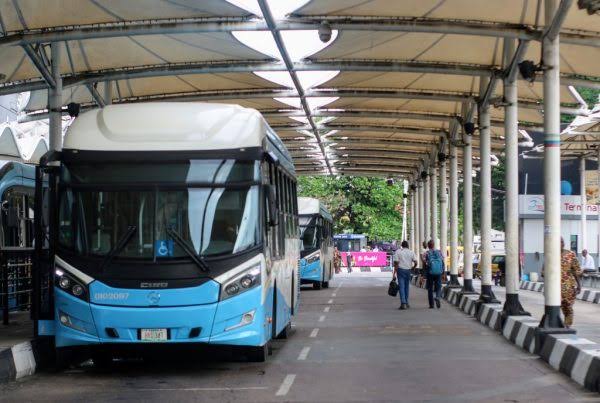As Nigerians face harsh economic challenges triggered by of the current administration’s reforms, the beginning of the year has also come with its own fresh issues. In Lagos there is a fresh rise in fare within the state.
At the Lagos State Metropolitan Transport Authority (LAMATA) headquarters, officials reviewed reports as the first day of the new BRT fare took effect.
They had anticipated backlash — fare hikes were never popular — but with rising operational costs, the increase was unavoidable.

“We understand the concerns,” a senior official admitted, glancing at the flurry of complaints on social media.
“But without this adjustment, keeping the buses running efficiently would be impossible.”
For instance, passengers travelling from Igando to Obalende now pay ₦1,062 instead of ₦900, while those commuting from Ikeja to Obalende face a fare hike from ₦500 to ₦590.
Economist Wasiu Alli highlighted how the increased costs significantly strain household budgets, especially as electricity, telecom, and banking expenses also continue to rise.
Reactions On Social Media
Meanwhile, social media users voiced their displeasure.
Ajayi David A.D.A.K.S argued that the hike would push commuters toward cheaper, unregulated ‘danfo’ and ‘korope’ buses.
For us, this will not also go down well, since too much demand for such ‘cheaper’ buses would increase their fare.
Read Also; Why Your Rent Increase Is Beyond Government’s Intervention
However, he insisted that reducing fares, rather than increasing them, would improve affordability and efficiency.
Service Quality Concerns
Similarly, Kelly Aigbedion criticised LAMATA for allowing BRT drivers and station operators to collect cash instead of enforcing the Cowry card system.
He urged the agency to fix this issue first before increasing fares.
Additionally, Abu-Naheemah expressed concerns about service quality.
He noted that most buses remain dirty and lack proper air conditioning, except for the few electric ones.
Furthermore, he emphasised that paying higher fares for subpar service feels unfair.
On a broader level, Pedro Muhammed Olayinka questioned the timing of the increase.
He pointed out that with fuel prices dropping and the naira stabilising, raising fares now feels unjustified.
Rising Cost Of Living In Lagos
Ultimately, as BRT buses continued their daily routes, commuters reluctantly accepted the change.
However, their dissatisfaction underscored the growing financial pressures of living in Lagos.

